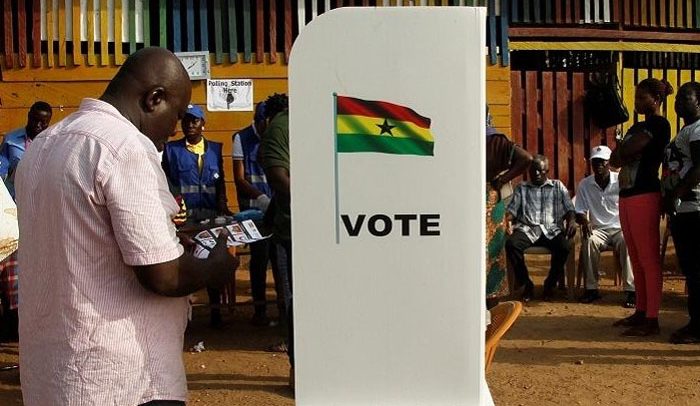A national opinion poll conducted by the Institute of Local Government Studies (ILGS) has anticipated a 67 per cent voter turnout in the upcoming December 17 referendum that seeks to amend Article 55(3) of the Constitution to pave way for the sponsorship of candidates by political parties at the local level.
The study which was conducted between 6th and 11th November sampled 6,650 persons out of the country’s voter population of 16, 845,364.
Interviews with participants selected through a purposive sampling method from 44 metropolitan, municipal and districts showed that 4,358 (67%) would participate in the referendum while 1,139, representing 18 per cent, would not vote, while 15 per cent, representing 997, remained undecided.
Speaking at the launch of a study report yesterday, the Director of the Institute, Dr. Nicholas Awortwi, said the process of selecting participants was based on regional heterogeneity to reflect regional characteristics and trends for the purpose of high accuracy in analysis.
The report indicated that though 65.64 per cent of participants claimed to be aware of the upcoming referendum, only 54 per cent could explain the ‘nitty-gritty’ of the referendum while 43 per cent misconstrued the referendum to mean the election of municipal, metropolitan, and district chief executives (MMDCEs).
Extrapolation based on demographics showed middle aged group between 41 and 60 years, employed persons, voters with tertiary education and more males have high awareness level about the referendum.
On a regional basis, the report suggested that the three newly created regions, Savannah, North East and Oti would have the highest expected voter participation with 96 per cent, 93 per cent and 87 per cent, respectively.
Dr. Awortwi said the regions with lower expected turnouts included Greater Accra, Western North and Eastern with 50 per cent, 53 per cent and 54 per cent, respectively.
The study which was conducted before statements from the opposition National Democratic Congress (NDC) to suggest a ‘No’ vote showed that there would be high voter participation in strongholds of the NDC reflected by 72 per cent as against 66 per cent in New Patriotic Party (NPP) strongholds.
Among the 67 per cent of voters who would turn out to vote, 75 per cent represented by 3,245 intend to vote ‘Yes’ while 539 representing 12 per cent opted for a ‘No’ vote, with 13 per cent represented by 566 of participants remaining undecided.
The report has on a regional basis also identified Oti, Bono East and Ahafo as regions with high ‘Yes’ votes of percentages 93, 92 and 84, respectively.
On the other hand, the regions with lower ‘Yes’ vote include Northern, Central and Savannah with percentages of 55, 66 and 68, respectively.
Since the study was conducted prior to the public statement of the NDC and the latest ‘No’ vote campaign from the National House of Chiefs which has sparked a ‘fight’ among prominent chiefs, Dr. Awortwi has suggested the need to re-conduct the poll to measure how significant the recent happenings could change the outcome of the referendum.
By Issah Mohammed


